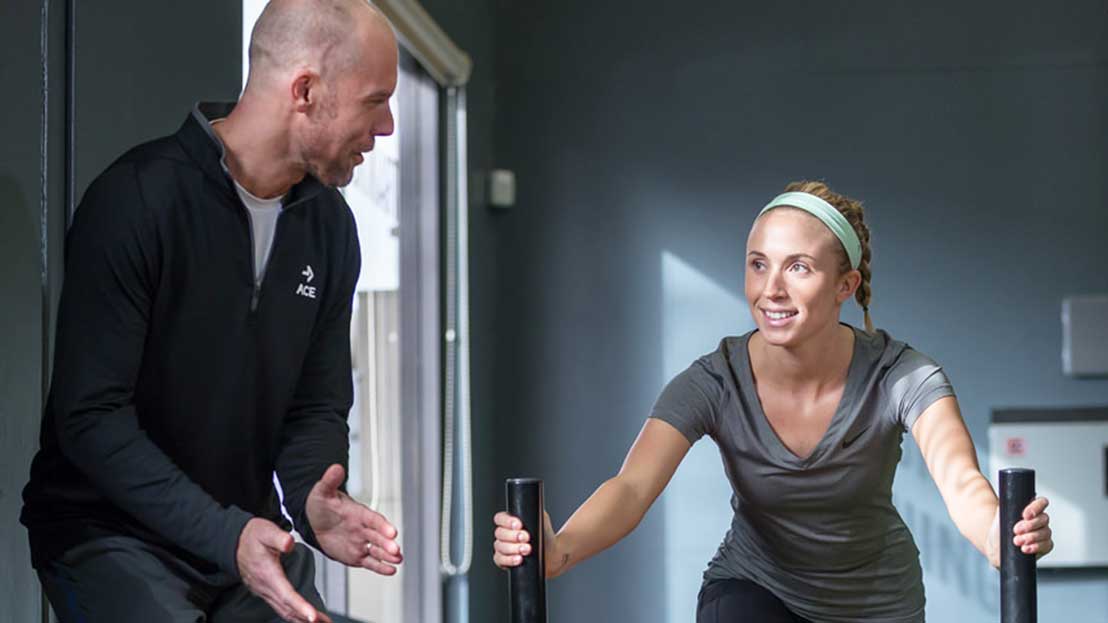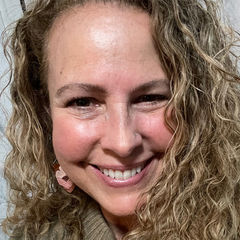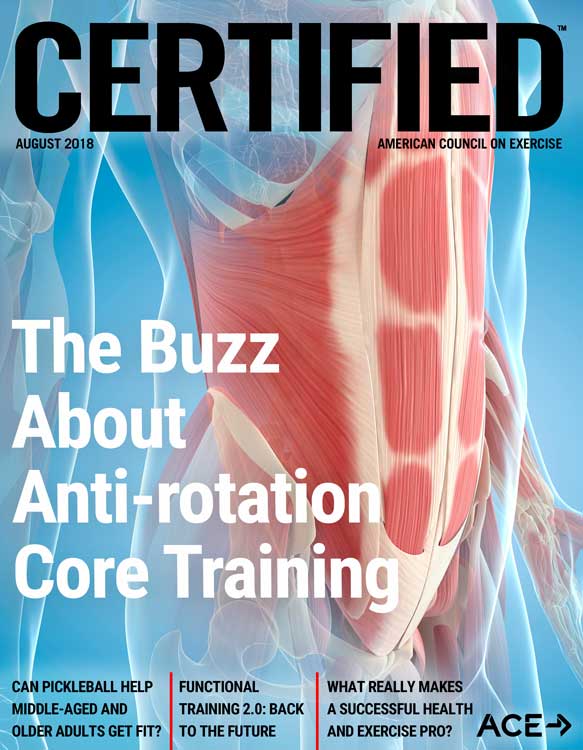
Maybe you're a newly certified personal trainer, group fitness instructor or health coach and want to know the secrets to success in this business. Or perhaps you’re an experienced and seasoned pro who’s ready to go to the next level. No matter where you are on this journey to success, we’re about to fill you in on what really makes a health and exercise professional successful.
But first…
What Is Success, Anyway?
Before we get into what makes you successful, we first need to define success—or more accurately, you need to define what success means to you. As you’ll see, success is different for everyone.
Veronica Sutherland, owner of Pilates & Movement Therapy Studio in Orange, NSW, Australia, says that success involves generating an income that allows her to create the lifestyle she desires. “But client retention and results are obviously huge indicators of success, as well.”
“For me, personally,” says Tevia Celli, director of education for Cyclebar®, “I define my success by the respect of my peers in the same industry, as well as being a leader in my field.”
Doug Holt, C.S.C.S., M.F.S., is an Internet marketing and fitness industry expert. Simply put, his definition of success is “having my business work for and around my life, rather than trying to work my life around my business.”
“In my opinion,” responds Ryan Halvorson, a writer, editor and fitness-industry consultant in Calif., “the greatest indicator of success in fitness is return business. When you no longer have to hustle to fill your sessions or classes, this is the point at which you know you’ve developed a successful product and/or service that people love.”
For Heather Glenn, certified holistic health coach and ACE Certified Personal Trainer, success is “being able to afford the lifestyle you want…and have more financial and time freedom.”
For others, success is intangible. “I live for the light bulb moments—the moment clients or students realize their potential and that they have the power to initiate a change that will affect the rest of their life for the better,” explains Lynne Skilton-Hayes, an international fitness presenter and fitness program supervisor at the University of Guelph in Ontario, Canada. “I’ve touched them in a way that for the first time, they believe their goal is possible. For me, that is success.”
What’s your vision of success?
The Recipe for Success
Ultimately, success is a recipe involving several ingredients, some making up the base of the recipe, others adding a little spice to it. And while initial education or certification is an obvious part of this recipe, being successful in this business goes well beyond that base knowledge.
“For the fitness professional today, the skills required extend far beyond initial qualifications. The toolbox of exercises learned does not really prepare a trainer for the real people they’ll meet each and every day,” says Sutherland. “Every person that enters a fitness environment brings a different exercise history, a different nutritional status, a different injury history, sporting history and occupation. Each of these is relevant in guiding the development and design of appropriate exercise programs.”
 You must be willing and open to learning—always, adds Skilton-Hayes. “One needs to embrace opportunities for experience and education on an ongoing basis. You need to be open-minded and continue to learn in order to meet the needs of a diverse range of people and to be able to apply information and adapt it to different people.”
You must be willing and open to learning—always, adds Skilton-Hayes. “One needs to embrace opportunities for experience and education on an ongoing basis. You need to be open-minded and continue to learn in order to meet the needs of a diverse range of people and to be able to apply information and adapt it to different people.”
And while you may love your work, it still needs to be treated as a business.
“I think that one thing that separates the good from the great is that the great run their businesses like a business,” asserts Holt. “If people don't know about you, then you can't help them. If you mismanage your business, then you’re out of business—and can’t help people. This is a passion business, but it’s still a business.”
Halvorson agrees and says that you definitely need to know your way around the marketing space and have at least a base knowledge of business to be successful. “If you aren't able to adequately promote what you do, then nobody will learn about you, regardless of how great of a pro you are.”
“You need to treat the work you do seriously and treat it as a professional business,” urges Glenn. “And you need to take yourself seriously. This means you must show up prepared and on time. It means continually learning and growing both in our field, as well as [in your knowledge of business]. It means [engaging in] good communication, learning from others, failing and moving forward, taking some risks and good customer service!”
“And in this day and age,” adds Holt, “you must be online. You must have an online presence and offer your services to a larger marketplace. You can no longer just depend on the local economy.”
Heart-centered
With all this talk of business, you might be wondering where the fun in your work fits in. There’s room for that, too. Through the years, people have jokingly commented that my clients can’t possibly be working hard enough, because there’s just way too much laughing going on.
Skilton-Hayes can relate. “I've been told I’m pretty funny and able to make the hardest workouts fun! I believe without a doubt that people will never remember what you show them or tell them, but they will always remember how you made them feel. I strive hard to create that experience in all my interactions, whether it’s participants in classes or clients.”
She continues, “I think success also comes from hard work, passion and dedication—and chasing your dreams. Don’t take no for an answer. And never give up. The sooner you learn that failure is a stepping stone to success, the more steps you take.”
Nearly all of the sources for this piece stated one of the same traits for success: being able to “read” your clients and be flexible with their programs, based on what you read on any given day.
“The simple question, ‘How are you?’ when greeting a client should be asked with great attention to the response,” urges Sutherland. “The emotional motor system is intrinsically linked to physical performance. A client who has had a particularly stressful week may need a different program. Perhaps a lighter program followed by some deep breathing and release work is more appropriate. You must be flexible and have the ability to change a program on the spot, based simply on how the client is feeling today.”
Halvorson feels that the best health and exercise professionals have learned empathy and how to be a coach, not a trainer. “So much of affecting change and truly helping someone progress toward reasonable, realistic goals has to do with the mind and emotional state,” he explains. “The best pros have an empathy that helps them better understand what their clients go through and how to adjust—sometimes on a dime—what happens within the session. Great coaches learn to read clients’ body language, facial expressions and language choices, so that they can sense if something is off. They also know how to adjust their own language choices and motivational style to fit the personalities of each individual or group.”
“Succeeding in this business requires reading a person and building trust and rapport quickly to help create an environment in which the person is excited to pursue his or her goals,” agrees Wilson. “So many trainers I see come at it from the guilt/shame/fear tactic and try to drill in to clients that everything they are is wrong. They aren’t thin enough, they don’t make good enough food choices, they’re not taking their health seriously, they’re not serious about change, and on and on. This has proven time and time again to be ineffective and can actually make things worse. While it might motivate someone temporarily, it does not inspire them. Anyone can dispense knowledge about nutrition and exercise. We need to make sure we’re filling our clients with hope and excitement, and creating an environment that fosters that attitude to grow and spread outward.”
Wilson also reminds us that our clients' decisions are not moral choices. “They are simply decisions that will either take them further from or closer to their goals. When we approach it like that, we take out the frustration, resentment, and other emotions and stop looking at them as ‘right’ or ‘wrong’ decisions according to us."
Holt reminds us that our work should be heart-centered. “A successful fit pro must lead with his or her heart first and follow through with integrity. Yes, continuing education is very important, but nothing trumps the true desire to help your clients. I’d say empathy and truly caring about someone are two of the top characteristics one must have. It’s kind of like that old quote: No one will care what you know until they know that you care.”
Education and certification are must-haves to get started in the fitness industry. Add to that savvy business practices, and you'll have plenty of clients. But for true longevity and success in this field, passion and empathy and a true desire to help people must make up the heart of your work. This is what turns a job into a calling.





 by
by 

 You must be willing and open to learning—always, adds Skilton-Hayes. “One needs to embrace opportunities for experience and education on an ongoing basis. You need to be open-minded and continue to learn in order to meet the needs of a diverse range of people and to be able to apply information and adapt it to different people.”
You must be willing and open to learning—always, adds Skilton-Hayes. “One needs to embrace opportunities for experience and education on an ongoing basis. You need to be open-minded and continue to learn in order to meet the needs of a diverse range of people and to be able to apply information and adapt it to different people.”
